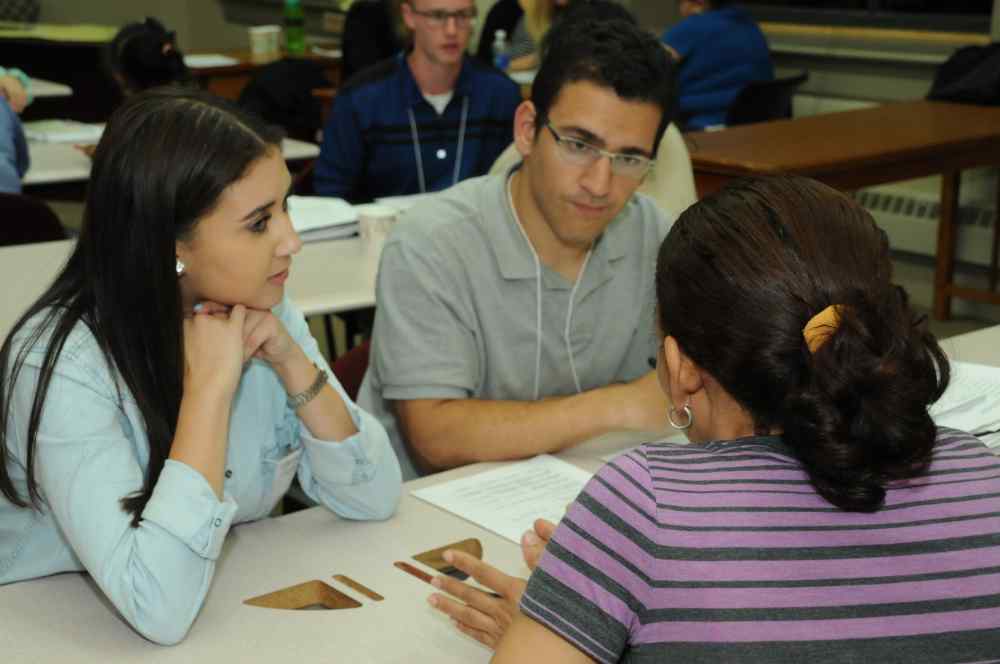Paul is one of eight students working in the newly established Financial Capability Center at Merrimack this semester, offering financial coaching to low-income clients from around the Merrimack Valley. The students applied for the positions as part of a semester-long internship for credit. They spent the early part of the semester learning the basics of financial coaching from Professor Ana Silva and two other faculty mentors closely involved with the center.
Many of the students chose the financial coaching internship to combine their finance knowledge with a desire to give back. “We’ve been taught valuable financial skills here at Merrimack and I believe it is important to dispense that knowledge so that it can benefit the broader community. This is one of the most rewarding experiences you can take away from an internship – the opportunity to turn someone’s life around,” says Brian VandenAkker, ’17.
For Linnea Houde, ’17, financial coaching “…offers an opportunity to gain hands on experience with actual clients. It is a great way to see if this is an area of finance that I would want to pursue after graduation,” she says.
During the course of the semester, the students conduct four workshops and a series of one-on-one coaching sessions with their clients, focusing on topics like goal-setting, budgeting and managing expenses, and saving and borrowing money. Most clients are aiming to reduce their debt burden, but some want to buy a car, improve their credit score, or have other financial goals.
The one-on-one coaching sessions proved to be a great learning opportunity for the students. “I was extremely nervous that I wouldn’t be able to live up to my client’s expectations and that when it came time to actually discuss their finances, I would have no idea what I was doing. This wasn’t the case at all. My first client meeting flowed very well, and I was surprised by how naturally helping someone understand their finances came to me. This is a testament not only to previous classes I’ve taken, but to how well the three faculty mentors that oversee the program had prepped us,” says Brianna Roberts, ’17.
Gabriel Maechaoui, ’16 had a similar experience in his one-on-one coaching sessions. “I’ve been able to articulate myself and lead meetings in a way that not only benefits the client but also helps me as well. It is a learning experience for both sides,” he says.
For students considering the financial coaching program, Paul Sullivan, ’17 says, “Do it. It’s a great experience you can gain a lot from. You learn a lot about personal finance and how to manage your own finances.” Logan Caswell, ’16 cites the real-world experience of working with clients, “It is fast-paced, so you have to be resourceful and think on your feet because things are changing or client needs shift. You need to be able to think critically and come to solutions quickly.”
Brianna Roberts, ’17 feels similarly. “I definitely recommend this program to anyone interested in finance. It helps to affirm your understanding of the material you’re learning in the classroom and enforces a lot of good behavior that’s useful for anyone in the business world,” she says.
The financial coaching program is being offered as part of a partnership with ACT Lawrence, the St. Mary’s/Merrimack College Community Outreach Partnership, and the Financial Capability Center at Merrimack. Students interested in financial coaching, should contact Professor Ana Silva at silvaa@merrimack.edu. Students from all majors are welcome and encouraged to apply!


